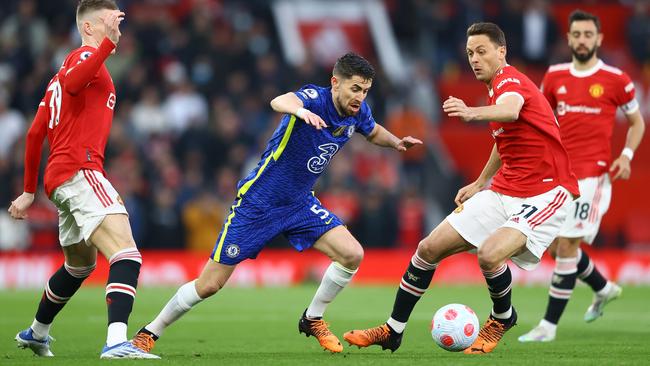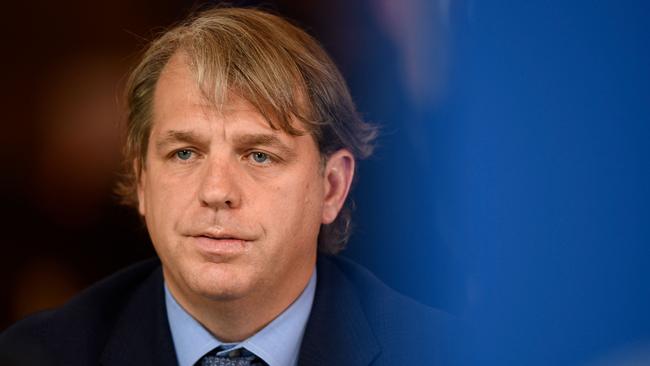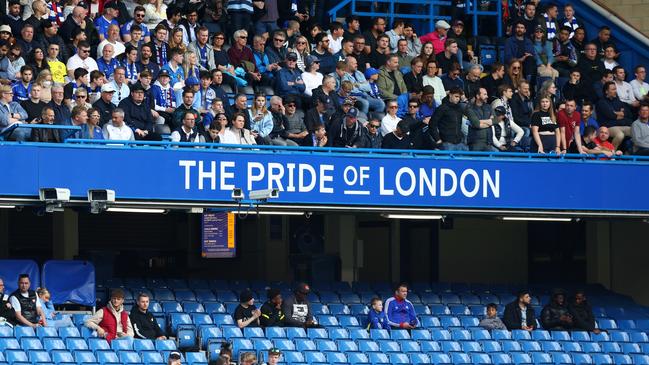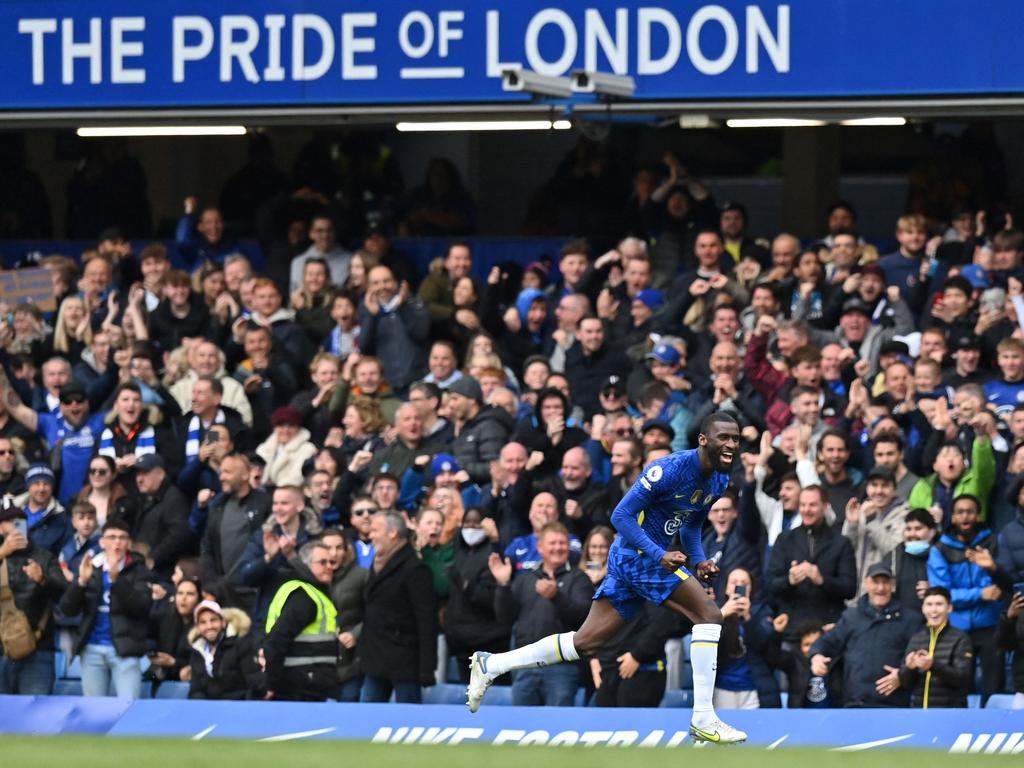Chelsea sale would cement English soccer as an American outpost
A US-led takeover of the club means more Premier League teams are controlled by American investors than British.

Few takeovers in the history of English soccer have been more complicated than the forced sale of Chelsea Football Club. Pressed onto the market after its billionaire owner Roman Abramovich was sanctioned by the UK government for his ties to Russian President Vladimir Putin, the team immediately drew interest from investors around the world, all hoping to leap on of soccer’s glitziest brands.
But for all the twists of government involvement, a military conflict in Ukraine, and a protracted bidding war, the process appears to be heading for what has become the most familiar Premier League outcome: a marquee club landing under American control.
A group led by Los Angeles Dodgers part-owner Todd Boehly on Friday entered exclusive talks to acquire Chelsea from Abramovich for over $US3bn ($4.25bn), potentially setting up the richest ever acquisition of a sports team. (The forthcoming sale of the Denver Broncos in the NFL would likely exceed it.) If it is finalised, Boehly’s deal for Chelsea would mean that American investors will hold majority stakes in more English Premier League clubs (seven) than investors from the UK (six), a scenario that might have seemed impossible when the league was founded in 1992. Back then, English clubs were typically controlled by local, self-made millionaires who had bought into their boyhood teams. Wall Street tycoons were still a long way from caring about the fates of places like Burnley and Liverpool.

Few properties in sports, however, can match an English soccer team for sheer planetary reach. The Premier League is shown in more than 190 countries and far outstrips the viewing figures for any other domestic sports league.
As the league grew richer and more popular – off the back of massive television rights sales and international distribution – interest from abroad began to trickle in. When Abramovich bought Chelsea in 2003, he was only the second non-British owner in the league’s history. Americans soon followed him in, actively courted by Premier League executives. Former Aston Villa owner Randy Lerner, whose family had also owned the Cleveland Browns, remembered being told in the early 2000s that any of half a dozen clubs could be his for the right price.
Within a decade, US money was buying in. The Glazer family was installed at Manchester United, Boston Red Sox owner Fenway Sports Group acquired Liverpool, and the sports and real-estate mogul Stan Kroenke was taking over Arsenal. Their clubs competed for trophies, spent big in the transfer market, and capitalised on rapidly growing interest from stateside fans. NBCUniversal spent $US1bn for six years of Premier League rights in the US. And last year, it reupped for another six years for $US2.7bn.
The U.S. effectively had its fifth major sports league. It just happened to play its games across the Atlantic.
So it was no coincidence when the Boehly consortium’s most serious competition came from two other American-backed groups in a process overseen by a New York-based Raine Group. One was headed by Stephen Pagliuca, co-owner of the Boston Celtics and co-chairman of the private-equity firm Bain Capital, while the other was driven by Philadelphia 76ers co-owners and private-equity investors Josh Harris and David Blitzer. The process had earlier included the Chicago Cubs-owning Ricketts family as well, until the group pulled out following the revelation of certain racist emails.

For the British government, which needs to approve any final agreement, a US takeover was much less fraught than the Premier League’s previous sale, which saw a group led by the Public Investment Fund of Saudi Arabia acquire Newcastle United. The vocal public backlash raised questions over Saudi’s human rights record, its ability to outspend nearly any rival, and how much control the Saudi crown might exert over the club.
The Chelsea sale comes without those issues. But the expanding US influence in English soccer still meets plenty of hand-wringing in Britain. Petrochemicals billionaire Jim Ratcliffe made it clear how he felt about foreign ownership in his late offer for the club on Friday.
“This is a British bid, for a British club,” he wrote in a statement. “We believe that a club is bigger than its owners who are temporary custodians of a great tradition.” Ratcliffe, who already owns soccer clubs in France and Switzerland, is not believed to represent a challenge to the Boehly group’s bid. He had a chance to bid early in the process, did little diligence, and is no longer considered a serious candidate, people familiar with the matter said.
The relationship between English fans and American investors has rarely been smooth. When the Glazer family took over Manchester United in a massive leveraged buyout in 2005, it was met with protests outside the stadium and death threats. Seats around United’s home stadium of Old Trafford are still dotted with stickers reading “Glazers Out.” Arsenal fans routinely call for Kroenke to sell the club. And even Liverpool supporters, who have seen their team return to the pinnacle of European soccer, turned on FSG in 2021 after the debacle of the failed attempt to establish a European Super League.
Chelsea supporters are hoping they won’t have to do the same, the club’s Supporters’ Trust wrote. “Any new owner of Chelsea FC must demonstrate its commitment to protecting supporters and the club’s heritage.”
Cara Lombardo contributed to this article.
The Wall Street Journal




To join the conversation, please log in. Don't have an account? Register
Join the conversation, you are commenting as Logout